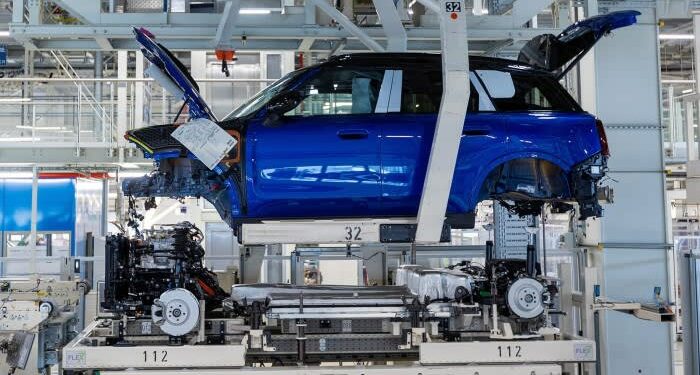Simply sign up to the Electric vehicles myFT Digest — delivered directly to your inbox.
After Brussels’ preliminary tariffs on Chinese electric vehicles, key decisions have to be made by both sides. The tariffs must be confirmed (or not) by EU governments in the autumn. China must decide whether and how to retaliate. These decisions will be interdependent: Beijing will no doubt target capitals with bespoke threats (French cognac is already in its crosshairs) depending on what stance they take.
There is, however, a bigger question: what role should China play in Europe’s decarbonisation agenda? For the Europeans, it is urgent to clarify how they link their twin goals of decarbonising — in particular phasing out new fossil fuel cars within about a decade — and boosting their domestic green tech industry.
Is the aim for the 10mn or so cars Europeans buy every year to be all zero-carbon and produced in Europe? Is it for all the cars to be zero-carbon, but with a significant share coming from China? Or is the priority to ensure that the bulk of EVs bought in Europe are made in Europe — even if that means missing the goal of all new cars soon being carbon-free?
Confusion over where Europe aims to get to leads to confusion over the right means of getting there. What is clear is that Europe, rightly, does not want China to completely dominate Europe’s market for EVs, as it has with solar panels.
But if we take seriously the pledge to electrify the car fleet, and fast, it is unrealistic to expect the domestic industry to deliver, given its sluggish progress so far. Still only about 15 per cent of new European car purchases are pure EVs, and about a quarter of those are made in China.
The choice is really between the second and third options above — between, that is, using Chinese imports as part of the solution and protecting domestic industry even at the expense of a delayed or aborted transport decarbonisation.
The latter, unfortunately, is the path the US is going down. Its new 100 per cent tariffs in effect lock Chinese EVs out. By making cheaper EVs unavailable, they undermine the Inflation Reduction Act’s ability to convince Americans there will be a decarbonisation revolution — and therefore jeopardise EV adoption beyond those consumers who want and can afford a Tesla. Without expectations of a large domestic market, production capacity will not grow enough.
The EU has avoided this trap. Its tariffs are calibrated to offset actual subsidies, and give China a justification for not retaliating, given that its carmakers can still sell large volumes in Europe at a profit. But for that very reason, Europe’s politicians must decide what they think of a slightly lesser but still massive rise in imports.
The crux is whether a green-industrial trade policy to balance domestic industry promotion with decarbonisation goals works by making EVs more expensive for end consumers or less. The current direction does the former. But there is a way of doing the latter.
Such an approach would explicitly tolerate significant Chinese imports but combine this with much more aggressive policies to secure a reliable EV market for domestic producers.
Tariffs should be used to offset unequal production subsidies only, and the incoming carbon tariff should be promptly extended to cars (to remove cost advantages from carbon-intensive energy). Meanwhile tax, subsidy and procurement policies should give European producers certainty that they can sell a rapidly growing number of EVs at home.
It is essential to shift tax incentives for corporate cars from conventional to electric vehicles. Germany could make a big difference by doing this, at no burden (or even a saving) to its budget. Subsidies should require low carbon footprints, in effect reserving access to European carmakers. Best would be pan-EU incentives, or failing that, EU action to require member states to offer them.
In return, China should boost its own domestic EV take-up further through stronger consumer incentives. Stemming the export pressure somewhat would make it politically easier for Europe to tolerate what would keep coming in.
For this to be agreed, let alone stick, it would require more trust between Europe and China than currently exists. The reasons are China’s record of actively aiming to replace European industries, and its support for Vladimir Putin’s illegal invasion and crimes in Ukraine. Regaining Europe’s friendship is largely in Beijing’s hands. But European leaders could do their bit to communicate how attractive it could be.
Source link : https://www.ft.com/content/1a717eff-daca-43c7-a406-ae91219cb4de
Author :
Publish date : 2024-06-16 10:59:59
Copyright for syndicated content belongs to the linked Source.



